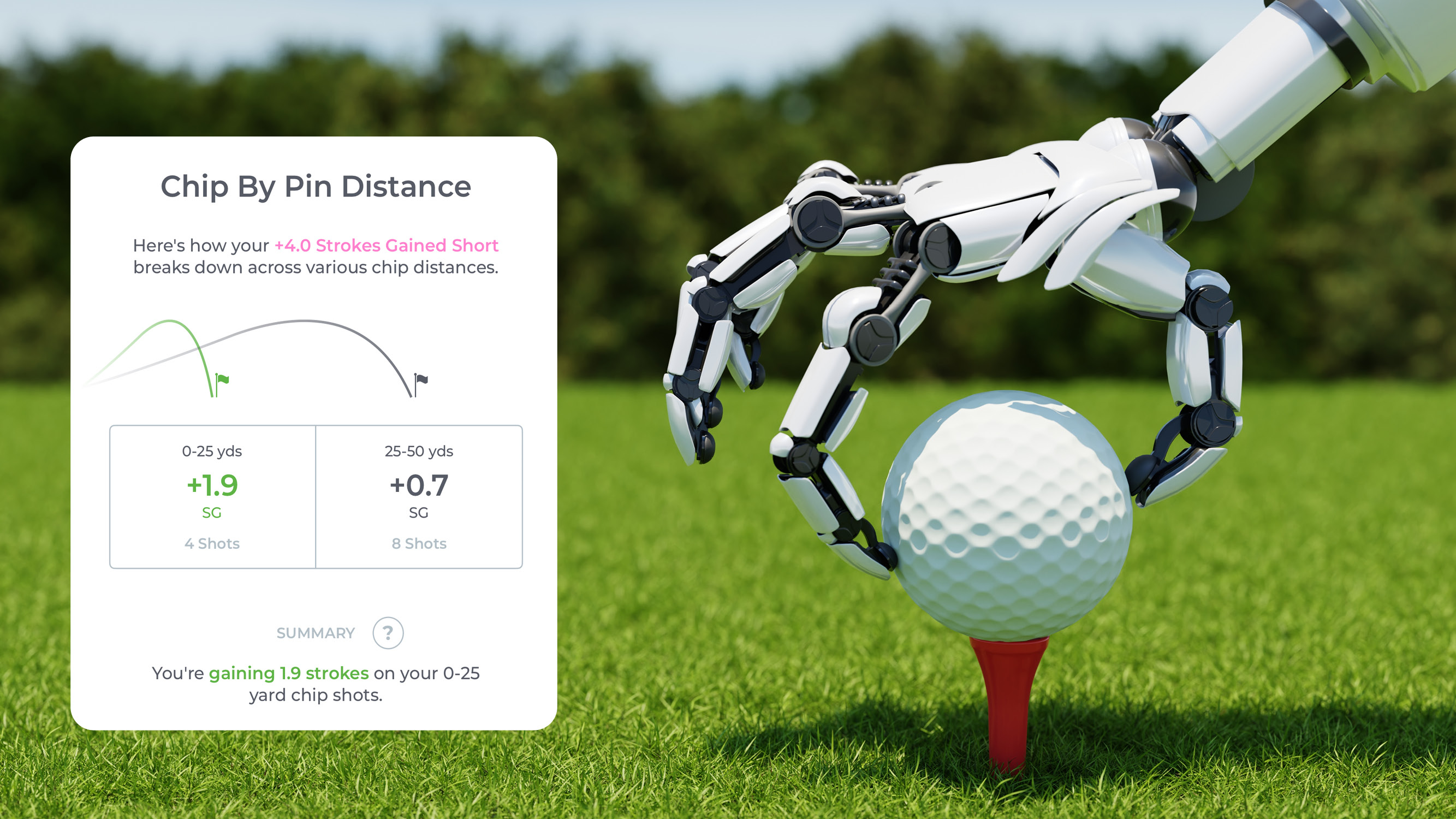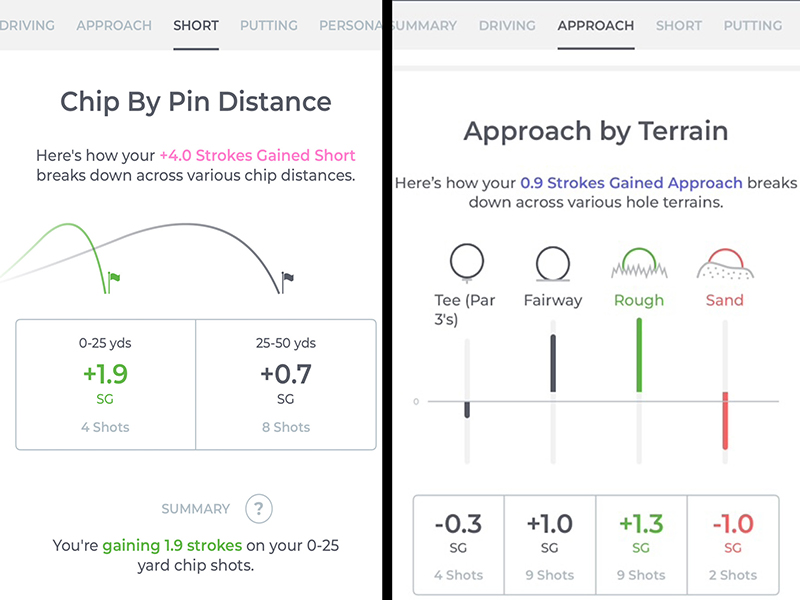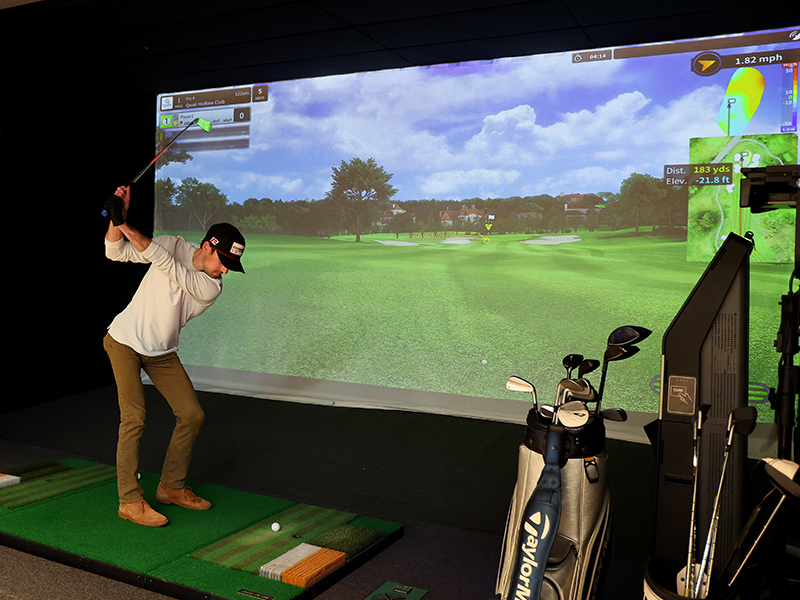
In the ever-advancing technological world we live in, artificial intelligence (AI) can help us with practically anything... but what about getting better at golf?
AI has become an increasingly used tool to assist with innovation in the sport, and while it can't swing the club for you, it can help players to shoot lower scores and play better golf.
In this article, I explore 5 ways that AI can help you lower your golf handicap...
1. Golf Club Design
We have all heard the famous saying 'all the gear, no idea', but it's undeniable that having the best golf clubs for your swing is a great way to shave shots off your scores.
AI has become common place in the golf club manufacturing industry, often used to collate and analyse huge volumes of data and provide insights on how improvements can be made in the design and performance of the latest equipment.
The next time you pick out a new driver, set of irons or putter, the likelihood is that AI will have played a key role in its development. The same process occurs, perhaps on a smaller scale, when you go for a custom fitting.
As you test out a few products to determine where to spend your cash, AI analyses your swing data and provides recommendations based on your profile in relation to the products on offer.
2. On-Course Shot Tracking
The introduction of shot tracking devices, like Arccos sensors, has already transformed my game. The ability to review my performance after the round, and understand where you lost or gained strokes, is invaluable for the curious golfer who wants to know where to focus their improvement efforts.
A detailed breakdown of aspects like how far I hit my irons, where my common misses are with the driver and how many 3-putts I made also help me to set targets and plan an appropriate strategy for my next round.
While on the course, my AI-caddie provides club recommendations based on my distance from the hole, wind conditions and gradient. Without this information, a lot of my shot selection would be based on under-researched assumptions, and I honestly couldn't be without it.

3. Golf Coaching
If, like me, you have absolutely no hope of improving on your own, getting a golf lesson is a great investment. Thanks to the introduction of AI in this sector of the game, golf coaching is now more personalised than ever.
Whether your club's PGA professional uses a swing analyzer or AI-powered putting aids, the ability to provide in-depth and immediate feedback is so beneficial to your progress. You might not even choose to go with your local pro, as the rise in popularity for online lessons has made it even easier to seek improvement from anywhere in the world.
There are also some cost-effective ways to seek help with your golf swing without forking out for lessons. Simply asking an AI chatbot, like Chat GPT, how to improve your golf swing will provide a series of tips, drills and recommendations for you to try, or you could go one step further and download an AI coaching app for your smartphone.
These apps work by recording your swing, and gives you immediate feedback based on a number of checkpoints. While I believe it's unlikely that an AI-generated analysis of your swing is as useful as an expert pair of eyes, it's an interesting option to explore for those willing to give it a try.
4. Participation
In a modern reality, golf is more than just 18-holes on a traditional course. Plenty of new golfers enter the sport through the use of golf simulators, and some even prefer this interactive version of the game.
The use of AI algorithms allow for participation via a different arena, giving you real-time feedback on your swing and offering the chance to practice and refine your technique away from the golf course.
Whether accessed socially, competitively or as an introduction to the sport, golf simulators provide an opportunity to take the game on the road and banish certain stereotypes around stuffy dress codes and strict conduct rules.

5. Television Coverage
There is a lot of work to do in order to make live televised golf coverage more entertaining, but one of its saving graces is the use of AI. Watching some of the best players in the world produce unreal golf shots on some of the tough courses is a pleasure in itself, but AI allows the data-loving consumer to really immerse themselves.
Data collated from shot-tracking helps to provide insights about player performance in relation to the field, often through the use of easily-digestible graphics, ultimately allowing us as viewers to better understand the game.
That in turn can help golfers with their own performance on the course, taking inspiration from the pros on television to improve shot selection and strategy – leading to lower scores.







